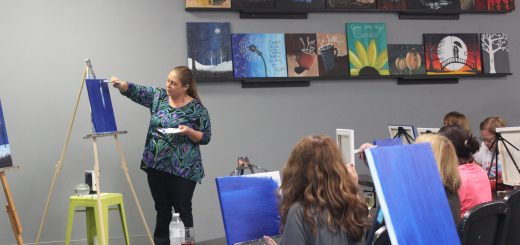Human Trafficking, The Modern Day Slavery
The idea of slavery, especially in the United States, is often thought of as an event hidden in the past.
However, slavery continues on today in the form of human trafficking.
Defined by the FBI on their official webpage, human trafficking is slavery including, “forced labor, domestic servitude, and commercial sex trafficking.”
Human trafficking exists as a large-scale issue, both across the globe, and specifically in the United States. In 2014, the International Labor Organization estimated 20.9 million people are enslaved every year throughout the world.
Veronica Scherbauer, a Programs and Development Specialist for the Ohio Attorney General’s office, said in an interview for The Wooster Blade, “When we look at the United States, I think it’s hard to tell how many victims exist because it’s very well hidden, but I would say it’s also very prominent here…”
Human trafficking is not limited to any singular ethnicity, socioeconomic class or other groups.
In her book The Slave Across the Street, Theresa L. Flores describes how she became caught in the net of human trafficking while living with her family in an upper-middle class suburb of Detroit. Flores later went on to become a social worker and advocate against human trafficking, and writes, “[Human trafficking] can happen to your neighbor. It can happen across the street.”
In Ohio, the establishment of the Human Trafficking Commission has helped in the fight against human trafficking. The commission has served as a meeting place for people both interested in and working to address the issue, Scherbauer said. The commission has allowed better communication and a forum in which people can speak, she added.
However, everyday citizens can play a part in helping to identify and fight human trafficking.
Anne Victory, the education coordinator of the Collaborative to End Human Trafficking, said in response to The Wooster Blade that some red flags of human trafficking include a person being overly timid, not speaking for her/himself, having lots of new items he or she cannot afford, becoming secretive about activities and living where he or she works.
Scherbauer said other red flags of human trafficking are when someone very young spends significant time with an older person, who is not related to him or her, or when an underage person is involved in prostitution.
Victory said education and choosing fair trade products (having no slave labor in their supply chain) are easy ways to fight human trafficking. Scherbauer encourages people to spread knowledge of human trafficking on to others and have them do the same.
The National Human Trafficking Hotline number is 1-888-373-7888.




